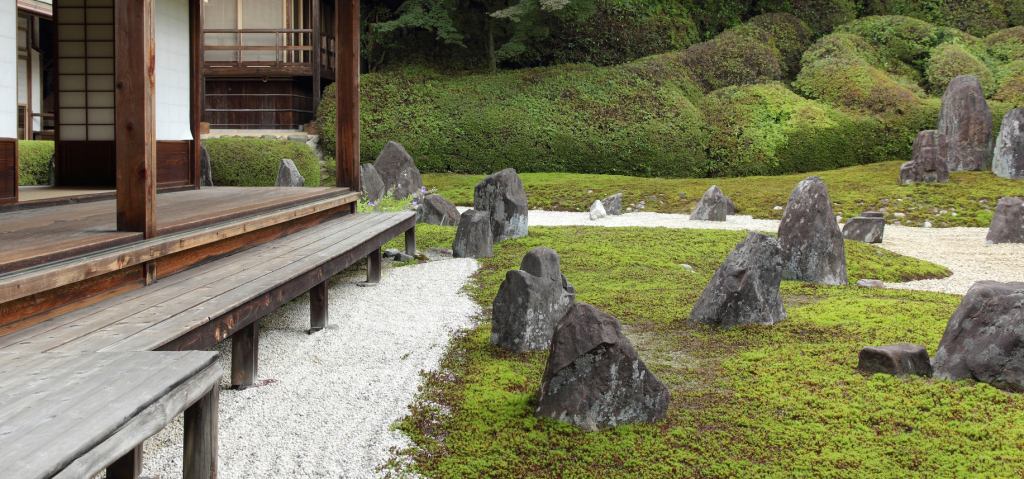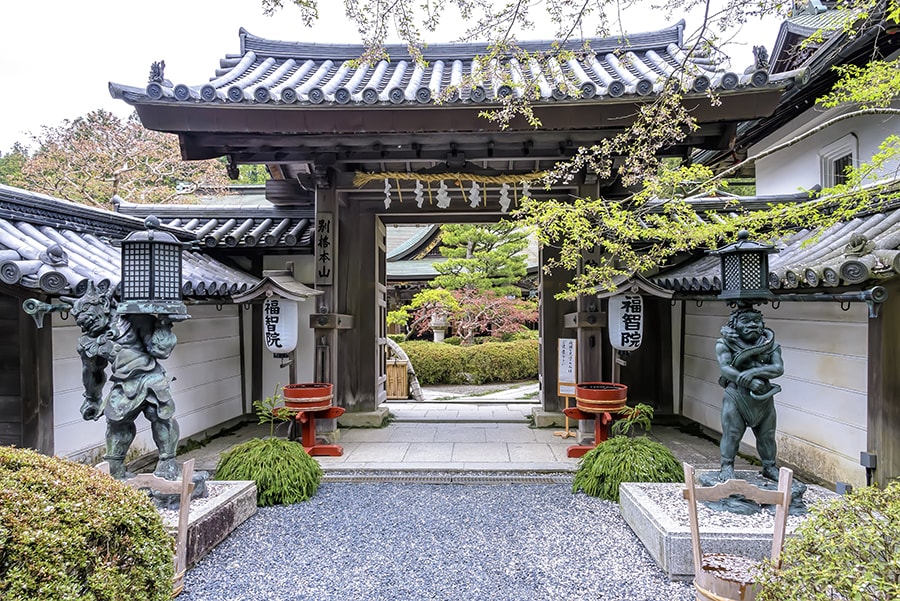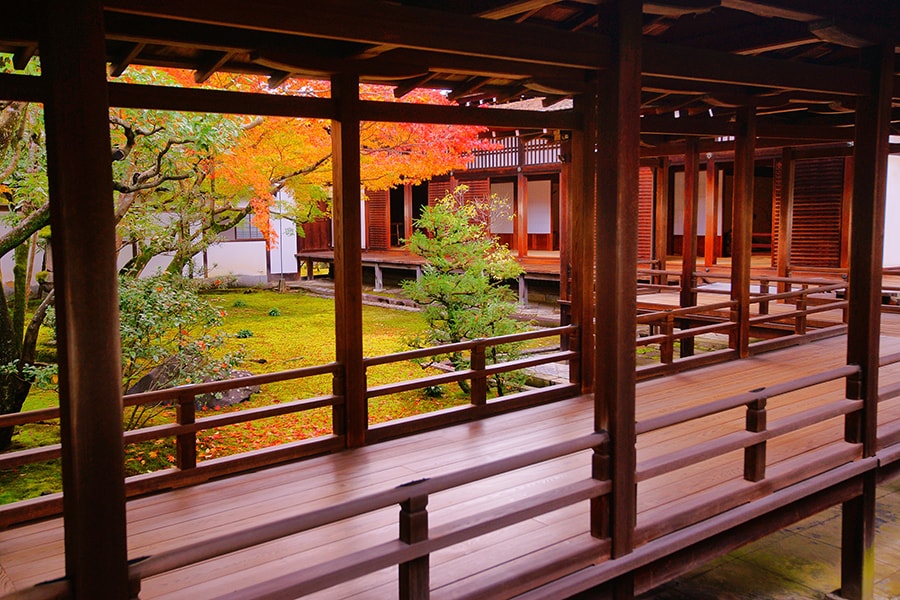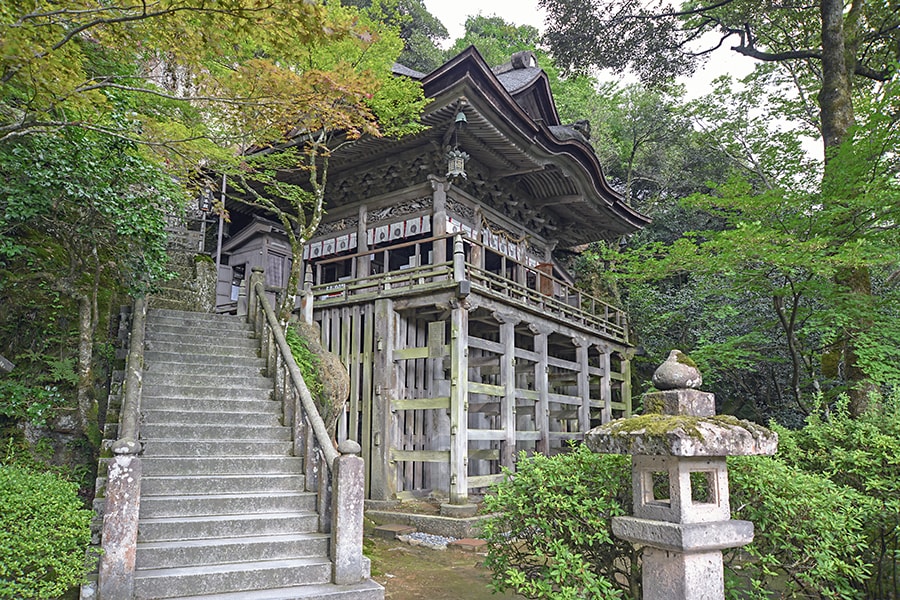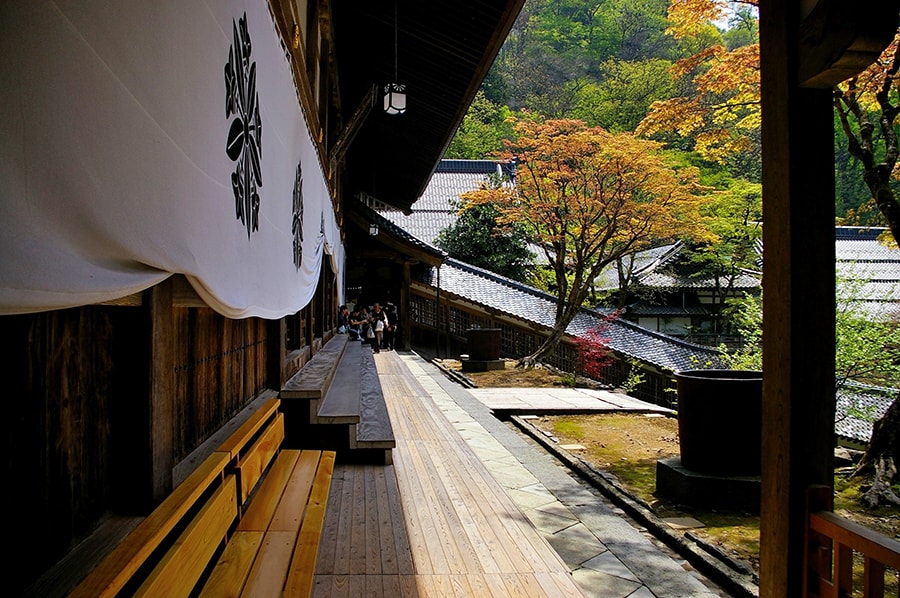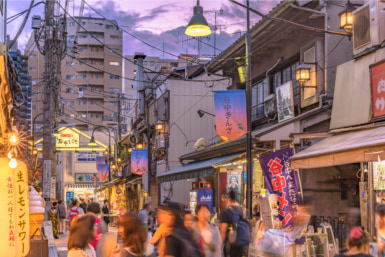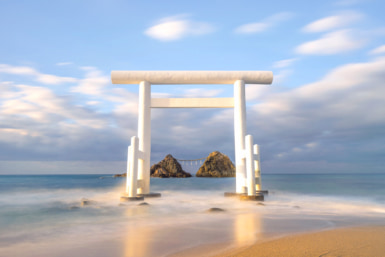Staying overnight at a temple is an ideal way to experience Japanese Buddhism. Here’s what you should know about shukubo and a few places where you can do it.
Although Japan is known for its luxury hotels and sumptuous ryokan, there’s another, more humble way to experience the country’s hospitality, while also deepening your appreciation of its rich and fascinating culture. The practice known as shukubo, or temple lodging, goes back hundreds of years, and was originally intended for monks visiting from other temples and religious pilgrims, but now hundreds of temples and shrines around Japan offer lodging to tourists and travelers, both foreign and domestic. A few things to keep in mind: you shouldn’t go into a shukubo experience expecting to be pampered. You’ll be comfortable, but not basking in luxury. Many temple lodging rooms don’t have private bathrooms, so shared facilities are to be expected. At some locations, there are larger, more well-appointed rooms with private baths; you’ll need to enquire about these. Depending on the location, WiFi may not always be offered, but then again, you probably came to a temple to get a bit of peace, so unplugging for a while isn’t the worst thing in the world!
On the plus side, most shukubo options offer the chance to eat (usually) vegetarian meals known as shojin ryori – temple food that is hearty and healthy, and whose ingredients are carefully chosen for balance in flavor and even in color. Guests also have the chance to take part in evening or morning meditations or ceremonies.
Koyasan, Wakayama Prefecture
Perhaps the most popular place to experience temple lodging in Japan is at Koyasan, in Wakayama Prefecture. Part of a UNESCO World Heritage site that includes two other areas in the Kii Mountain Range, Koyasan is the home of the Koyasan school, the oldest and largest sect of Shingon Buddhism. Given its importance, the area itself has grown to include more than 100 subtemples. More than 50 temples in the Koyasan area offer lodging, and many of them can be found on the Koyasan Shukubo Association’s English website (eng.shukubo.net/temple-lodging.html)
One of the most highly recommended locations in Koyasan is Eko-in. A stay at the temple includes instruction in meditation, a vegetarian meal, and an opportunity to take part in morning services, which includes chanting and a fire ceremony (starting at ¥11,500, www.ekoin.jp). Other popular locations include Fudo-in (¥14,580, www.fudouin.or.jp) and Shojoshin-in (¥10,800, shojoshinin.jp). Regardless of where you stay, you should definitely plan on an evening tour of the cemetery at Okunoin: it’s the largest in Japan, measuring two kilometers long and containing some 200,000 tombstones. Many tours leave from Eko-in and can be arranged through your lodgings.
Kyoto
Kyoto, with its abundance of temples, is another location with a wide range of shukubo options. One of them is the Shunkoin Temple Guest House, which is a part of a larger Zen temple known as Miyushinji that offers morning meditation classes (starting at ¥4,500, 075-462-5488). The Omuro Kaikan Hall at Kyoto’s Ninnaji offers a bit of a hybrid experience, with non-vegetarian meals and beer available for meals, as well as a chance to witness the morning ceremony and tour the temple’s beautiful grounds (starting at ¥11,000, includes two meals, www.ninnaji.or.jp/syukubou/stay.html). Rokuo-in is a very small temple in the Arashiyama area, with lodgings for women only (¥4,500, including breakfast, 075-861-1645), and Myoshin-ji Daishin-in is very popular with foreign travelers (¥4,700, including breakfast, 075-461-5714).
Kanazawa, Ishikawa Prefecture
One hidden gem that could be part of a trip to Kanazawa is the Shingon temple of Natadera, in Ishikawa Prefecture. This temple features expansive grounds, and the temple lodging is located on a small mountain with views out over the Japan Sea and nearby Mount Hakusan (¥13,000-¥15,000 per person, includes two meals, 0761-65-2111).
Eiheiji, Fukui Prefecture
Finally, if you’re really interested in experiencing the monastic lifestyle for a little while, we recommend Eiheiji in Fukui Prefecture. This temple complex was founded by Dogen, a pioneering figure in Zen Buddhism who started the Soto school in the 13th century. For this location, you’ll need to make a reservation in writing, a month ahead of time. It’s certainly not a place for a casual stay, but for people with a real interest in Buddhism, it’s an opportunity that’s well worth trying
(bit.ly/TWEiheiji, 0776-63-3640).
Feature Image: Sergii Rudiuk / Shutterstock.com
Updated On April 26, 2021

